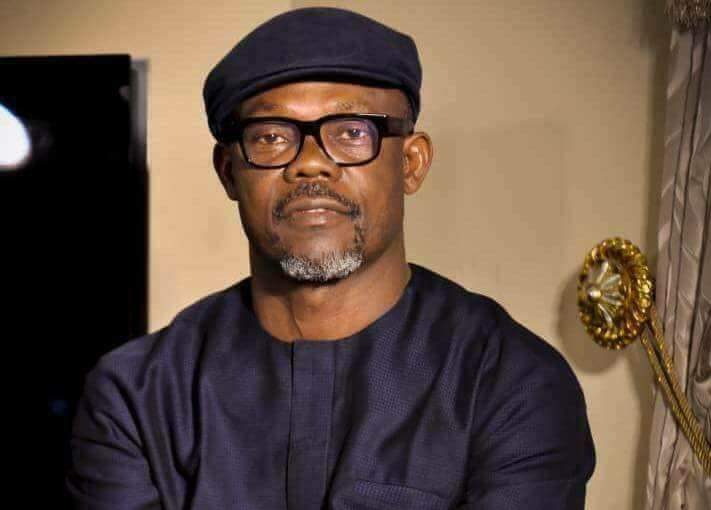Paragraph 1: Celebrating Progress in Infrastructure Development
The Nigerian government has reported significant strides in infrastructure development under President Bola Tinubu’s administration. Over 420 federal projects, encompassing roads, bridges, and other crucial infrastructure, have been completed or are nearing completion within the first two years of the administration. This accomplishment was highlighted by Senator Barinada Mpigi, Chairman of the Senate Committee on Works, during the 33rd Engineering Assembly organized by the Council for the Regulation of Engineering in Nigeria (COREN). He attributed this progress to President Tinubu’s “Renewed Hope Agenda,” which has spurred investment and reform in various sectors, including road construction, housing, energy, and bridge development. Projects such as the ambitious Lagos-Calabar coastal highway exemplify this commitment to infrastructural advancement.
Paragraph 2: Addressing Concerns of Engineering Failures and Regulatory Gaps
While celebrating the progress made, Senator Mpigi also expressed serious concerns about the rising instances of engineering-related failures. Collapsed buildings and deteriorating roads have become a national concern, signaling lapses in compliance with professional standards, inadequate supervision, and in some cases, outright malpractice by unqualified individuals posing as engineers. These failures not only result in tragic loss of life and wasted public funds but also tarnish the reputation of the engineering profession. The senator emphasized the urgent need to address the breakdown in the regulatory environment contributing to these incidents. He pledged the Senate Committee on Works’ full support to COREN in bolstering enforcement and ensuring compliance with engineering standards nationwide.
Paragraph 3: Strengthening Regulatory Frameworks and Promoting Accountability
The Senate Committee on Works is committed to collaborating with COREN and other professional bodies to tackle the challenges facing the engineering sector. This includes strengthening legislative frameworks to enforce mandatory adherence to engineering standards, advocating for the comprehensive implementation of building codes across all states, and supporting public awareness campaigns to educate the populace about the importance of quality engineering practices. The committee also lauded COREN’s initiative of linking participation in the engineering assembly to license renewal, recognizing it as a crucial step in promoting professional accountability and safeguarding public safety. This ensures that practicing engineers remain up-to-date with the latest industry standards and protects the public from the risks associated with incompetence.
Paragraph 4: Call for Collaboration and Integration of Engineers in National Planning
The 33rd Engineering Assembly served as a platform for stakeholders to emphasize the vital role of engineers in national development. Participants urged the government at all levels to integrate engineers into national development planning, recognizing the critical link between engineering expertise and sound public policy. Former Minister of Power, Barth Nnaji, highlighted the importance of establishing dedicated innovation funds and technology parks to encourage the development of locally-sourced engineering solutions tailored to Nigeria’s specific challenges. He stressed that engineers should be more than just technical experts; they should be strategic thinkers, policy advocates, and innovators who can adapt global best practices to local contexts.
Paragraph 5: Empowering Nigerian Engineers and Fostering Innovation
Nnaji drew inspiration from China’s development model, where engineers hold key leadership positions and contribute significantly to policy formulation. He urged Nigerian engineers to embrace a similar approach, becoming actively involved in shaping the nation’s future. He emphasized the need for investment in technology parks and innovation hubs where engineers, scientists, and entrepreneurs can collaborate to develop homegrown solutions in areas like off-grid solar energy, smart irrigation systems, and climate-resilient housing. By fostering innovation and ingenuity within the engineering sector, Nigeria can address its unique challenges and pave the way for sustainable development.
Paragraph 6: Renewed Commitment to Professionalism and Quality Service Delivery
The 33rd Engineering Assembly underscored the importance of professionalism, compliance, and appropriate remuneration within the engineering profession. COREN Registrar, Okorie Uche, called for a renewed commitment to quality service delivery and adherence to ethical standards. He affirmed COREN’s dedication to tackling issues such as quackery, non-compliance, and poor service delivery. Margaret Oguntala, President of the Nigerian Society of Engineers (NSE), echoed these sentiments, emphasizing the importance of quality education and fair compensation for engineers. Both COREN and NSE pledged to continue their collaborative efforts in upholding engineering integrity and promoting excellence in the profession. The assembly served as a pivotal moment for the engineering community to reflect on its role in national development and chart a course for a future built on innovation, ethical practice, and sustainable solutions.


